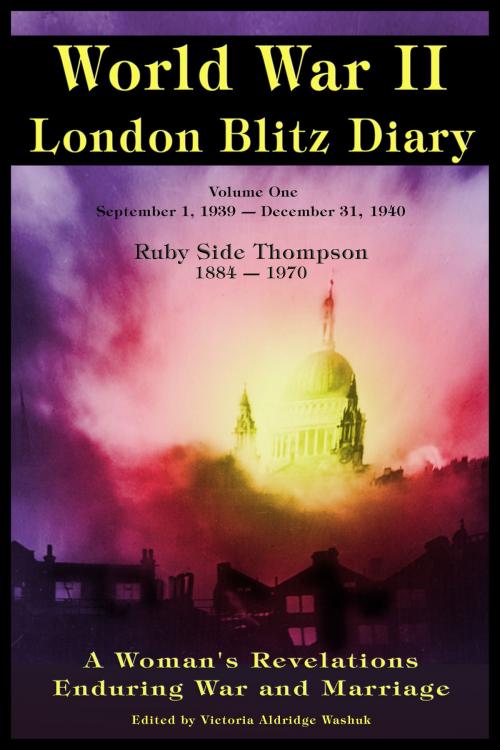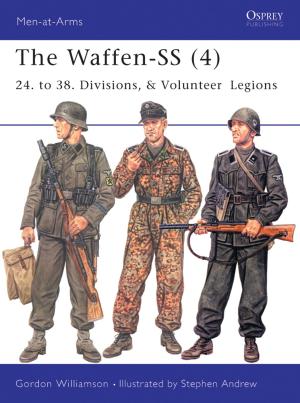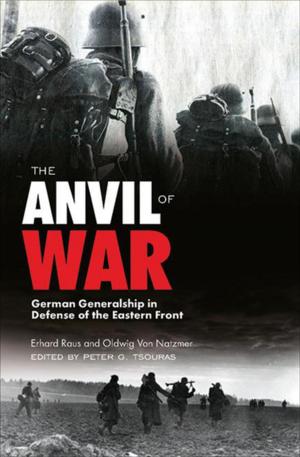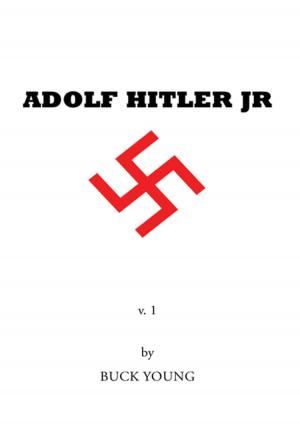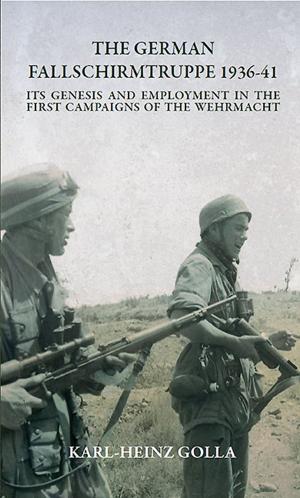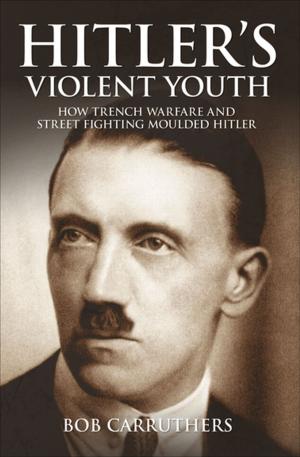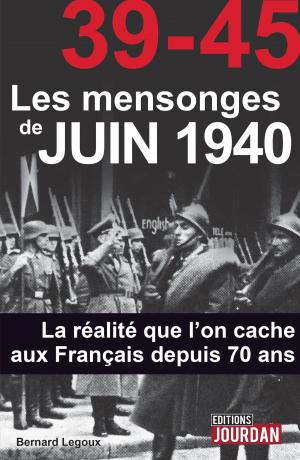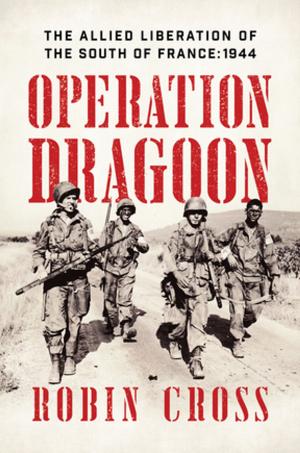| Author: | Victoria Washuk | ISBN: | 9781465940162 |
| Publisher: | Victoria Washuk | Publication: | September 27, 2011 |
| Imprint: | Smashwords Edition | Language: | English |
| Author: | Victoria Washuk |
| ISBN: | 9781465940162 |
| Publisher: | Victoria Washuk |
| Publication: | September 27, 2011 |
| Imprint: | Smashwords Edition |
| Language: | English |
Friday, September 1
War started today. After another week of lies and duplicity, Hitler launched into actual warfare early this morning. At five thirty this morning he announced the enclosure of Danzig in the Reich, and at five forty five he bombed his first Polish town . . .
The BBC has just announced that King George held a Privy Council this noon, and has signed papers completing the mobilization of our Army, Navy, and Air Forces. Further news to be broadcast at four p.m.”
So begins diary of Ruby Side Thompson, a middle-aged Londoner in a highly unsatisfying marriage who lived through the Blitz and who recorded with ink and pen whatever was utmost on her mind. Generally, her writing served as therapy for her bad marriage – and she chronicles her husband’s faulty behavior in great detail -- but when cataclysmic world events crash into her consciousness, they gain top priority and she writes fluidly as they unfold before her:
“Wednesday, May 15
At seven a.m. we heard that the Dutch have laid down their arms. After the Germans re-captured Rotterdam yesterday, the Netherlands Commander-in Chief issued an order to his troops concerned, to cease fighting. To continue resistance was hopeless.
“Now the struggle for Belgium proceeds . . .”
“Saturday, June 22
. . . The French Cabinet has been sitting most of today, and no armistice has been signed up till now, eight-fifteen p.m. Winston Churchill broadcast on Tuesday night, saying we would fight on “till the curse of Hitler was lifted from the brows of men.”
Such writing blasts history out of the realm of dry, dusty names and dates and nearly places the reader in the midst of events as they unfolded, very heady stuff for history buffs.
Sunday, September 1.
The raids at one p.m. and five-thirty are the worst Romford has yet experienced. At mid day fifteen bombs were dropped in the very center of town. The first one fell in Victoria Road, only missing the railway bridge by a half block. Then in a straight line across all those little roads towards Hornchurch and the Romeo, fourteen others were dropped, demolishing shops and houses and killing many people. Rumor gave the estimate dead as fifty, but we do not know the actual number yet. Perhaps it was more. I sat alone here in the most awful terror I have ever known. The noise was devilish, the house shook so much I expected it to fall upon me, and the suction in this air is indescribable. Machines were dwelling right over the house, and each bomb as it fell sounded as though it might be in the back garden.”
This is very important documentation and will have tremendous appeal to those who have an avid interest in the effect of the war on ordinary Britons.
Friday, September 1
War started today. After another week of lies and duplicity, Hitler launched into actual warfare early this morning. At five thirty this morning he announced the enclosure of Danzig in the Reich, and at five forty five he bombed his first Polish town . . .
The BBC has just announced that King George held a Privy Council this noon, and has signed papers completing the mobilization of our Army, Navy, and Air Forces. Further news to be broadcast at four p.m.”
So begins diary of Ruby Side Thompson, a middle-aged Londoner in a highly unsatisfying marriage who lived through the Blitz and who recorded with ink and pen whatever was utmost on her mind. Generally, her writing served as therapy for her bad marriage – and she chronicles her husband’s faulty behavior in great detail -- but when cataclysmic world events crash into her consciousness, they gain top priority and she writes fluidly as they unfold before her:
“Wednesday, May 15
At seven a.m. we heard that the Dutch have laid down their arms. After the Germans re-captured Rotterdam yesterday, the Netherlands Commander-in Chief issued an order to his troops concerned, to cease fighting. To continue resistance was hopeless.
“Now the struggle for Belgium proceeds . . .”
“Saturday, June 22
. . . The French Cabinet has been sitting most of today, and no armistice has been signed up till now, eight-fifteen p.m. Winston Churchill broadcast on Tuesday night, saying we would fight on “till the curse of Hitler was lifted from the brows of men.”
Such writing blasts history out of the realm of dry, dusty names and dates and nearly places the reader in the midst of events as they unfolded, very heady stuff for history buffs.
Sunday, September 1.
The raids at one p.m. and five-thirty are the worst Romford has yet experienced. At mid day fifteen bombs were dropped in the very center of town. The first one fell in Victoria Road, only missing the railway bridge by a half block. Then in a straight line across all those little roads towards Hornchurch and the Romeo, fourteen others were dropped, demolishing shops and houses and killing many people. Rumor gave the estimate dead as fifty, but we do not know the actual number yet. Perhaps it was more. I sat alone here in the most awful terror I have ever known. The noise was devilish, the house shook so much I expected it to fall upon me, and the suction in this air is indescribable. Machines were dwelling right over the house, and each bomb as it fell sounded as though it might be in the back garden.”
This is very important documentation and will have tremendous appeal to those who have an avid interest in the effect of the war on ordinary Britons.
